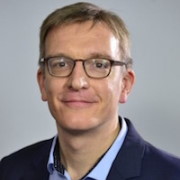'Socio-technical research to inform policy making for clean, efficient and secure energy transitions'
The User-Centred Energy Systems mission is to provide policy-relevant evidence on factors influencing energy use, including technology acceptance, and their impact on society.
Members
Strategic Plan
Users TCP’s Vision
To be the world-leading international collaboration platform for policy-relevant socio-technical research on user-centred energy systems.
Users TCP’s Mission
To provide policy-relevant evidence on factors influencing energy use, including technology acceptance, and their impact on society.
Strategic Context
The global energy sector needs to decarbonise substantially by 2030. This needs to happen against a backdrop of growing geopolitical and societal fragmentation and distrust, which the net zero transition could exacerbate. In this context, anticipating and addressing political and social concerns around decarbonisation will become increasingly important to maximise technology acceptance, adoption, and participation by end-users in support of deployment of infrastructure, purchase of low carbon technologies, and ancillary service provision from consumer assets.
Key social issues are shaping the speed and depth of the energy transition. These include different stakeholders’ perceptions of risk; levels of trust in energy system actors; how the costs and benefits of the energy transition are distributed across different stakeholders; and the extent to which these are perceived as being equitable. In addition to these broader societal issues, there are issues around individual end-users’ knowledge, skills and abilities to participate, along with questions around how we achieve and maintain social consensus on collective-good social outcomes.
Rationale for the Users TCP and its role in the IEA Energy Technology Network
As the energy transition progresses, the key challenges change from having the technical capacity, through ensuring economic viability, to addressing the social acceptability of action. To date, the IEA’s Technology Collaboration Programme has primarily focused on the first and second of these. The Users TCP seeks primarily to address the third, by bringing social research together with existing expertise in technologies, to accelerate the energy transition.
The Users TCP provides a home for international networks of social researchers, economists, political scientists, and policy makers to work collaboratively on compiling and sharing best practice policy-relevant research on the energy transition. Complementing our work on individual end-users actions, for 2025-30 we add a focus on wider societal issues of public acceptance and distributional impacts of the transition and how these are best addressed through policy mechanisms.
Objectives for 2025-2030
- Provide impartial, reliable and authoritative research, guidelines and recommended practices to public and private decision makers and implementers based on international evidence.
- Run at least eight international networks of expertise on the social aspects of energy use.
- To work across TCPs on the multi-disciplinary and systemic issues of the energy transition.
A set of actions
Our strategy is delivered through our Tasks. Users TCP currently has Tasks in the following challenge areas and will expand on these with the proposed indicative topics of future work.
Facilitating low carbon technology adoption and optimising its use: The factors influencing end-users’ adoption and use of low carbon technologies, services, and behaviours.
- Current: The Social License to Automate (SLA) Task investigates how to build and maintain trust to automate energy technologies in different jurisdictions and cultural settings.
- Current: The Global Observatory (GO-P2P) investigates the technological, policy, regulatory, and social conditions necessary to support the deployment of local energy market models.
- Current: The Human-centric Buildings for a Changing Climate Task investigates the role people play in delivering climate mitigative and adaptative buildings (an EBC-led joint Task).
- Future: In partnership with 4E TCP (flexible household appliances) and HPT TCP (heat pumps), assessing the barriers and policy options related to their adoption and flexible use.
Evaluating equity and affordability: How the energy transition impacts on different social segments with a focus on vulnerable people and communities.
- Current: The Hard-to-Reach Energy (HtR) Users Task helps policymakers, utility programme managers and researchers engage with this large and important energy user segment.
- Current: The EmPowering All (G&E) Task analyses energy policy and technologies from gender perspectives and provides recommendations for policy design and implementation.
- Future: Supporting Low-income Households and Disadvantaged Communities (LHDC) invest in energy transition technologies.
Enhancing public acceptance: The factors influencing public understanding and acceptance of energy policies and infrastructures.
- Recent: The CampaignXchange (CXE) Task develops policy guidance for public information campaign design and evaluation based on examples from different contexts.
- Current: The Public Engagement for Energy Infrastructure(PE4I) Task develops best practice guidance for public engagement around energy infrastructure
- Future: The interaction of Personal and Political Identity and Attitudes (PPIA) on support for the energy transition.
Providing education and training in support of the energy transition: Evaluating the formal and informal economy knowledge and skills to meet the needs of low-carbon energy systems .
- Current: The Users TCP Academy provides access to the knowledge developed through our research programme and the wider work of our partners.
- Current: The Behavioural Insights Platform ensures human behaviour is accounted for throughout the policy cycle to improve the efficacy of demand-side energy policies.
- Future: In partnership with external organisations to build frameworks and toolkits to support business decision makers develop and deliver their Net-Zero commitments (F4NZ).

Through our networks of expertise we will work within the new TCP Coordination Groups to address key cross-cutting issues of the energy transition.
The Users TCP Academy will continue to lead on disseminating work on the role of users in the energy systems and will be the initial focus of our work in our Education & Training theme.
Joint Task led by EBC TCP
Task/cost-shared: Task-shared
Timing: Nov 2024 to May 2029
Contact: https://annex95.iea-ebc.org/
Task Leader
Sustainable Energy Advice, New Zealand
Task/cost-shared: Cost-shared (NZD 55,000)
Timing: Phase 2: August 2023 to July 2026
Contact: Sea Rotmann
drsearotmann@gmail.com
Task Leader
KTH Royal Institute of Technology, Sweden
Task/cost-shared: Task-shared
Timing: Mar 2025 to Dec 2027.
Contact: Camilla Andersson
camillaa@kth.se
Task Leader
The Behaviouralist, United Kingdom
Task/cost-shared: Cost-shared
(25,000 Euros with option to fund more trials)
Timing: March 2023 to February 2026
Contact:
Jesper Akesson: jesper@thebehaviouralist.com
Task Leader
Austrian Institute of Technology GmbH, Austria
Task/cost-shared: Task-shared
Timing: November 2022 to October 2024
Contact:
Lisa Diamond: lisa.diamond@ait.ac.at
Task Leader
Institute for European Energy and Climate Policy,
Netherlands and the Renewables Grid Initiative, Germany
Task/cost-shared: Cost-shared (20,000 Euros)
Timing: March 2023 to February 2024
Contact:
Task Leader
University College London (UCL), United Kingdom
Task/cost-shared: Task-shared
Timing: September 2019 to February 2025
Contact: Anna Gorbatcheva
anna.gorbatcheva.17@ucl.ac.uk
Executive Committee
TCP Chair
Ainslee Emerson (Canada)
Gerdien de Weger (Netherlands)
Vice-Chair
Tara Esterl (Austria)


| Country | Primary/Alternate | Name | Affiliation |
|---|---|---|---|
| Austria | Primary | Tara Esterl | AIT Austrian Institute of Technology |
| Austria | Alternate | Sabine Mitter | Republic of Austria Federal Ministry of Innovation, Mobility and Infrastructure |
| Belgium | Primary | François Brasseur | Attaché, Federal Public Service Economy, SPF Economie |
| Belgium | Alternate | Geert Deconinck | KU Leuven – ESAT/Electa |
| Canada | Primary | Ainslee Emerson | Office of Energy Efficiency Natural Resources Canada |
| Canada | Alternate | Natalie Irwin | Office of Energy Efficiency Natural Resources Canada |
| Finland | Primary | Karin Wikman | Business Finland |
| Ireland | Primary | Hannah Julienne | Sustainable Energy Authority of Ireland |
| Ireland | Alternate | Ciarán Lavin | Sustainable Energy Authority of Ireland |
| Italy | Primary | Simone Maggiore | Ricerca sul Sistema Energetico (RSE S.p.A.) Power Systems Economics Transmission |
| Korea | Primary | Hwan-Jung Jung | Korea Energy Agency (KEA) |
| Korea | Alternate | Sangku Park | Korea Energy Agency (KEA) |
| Netherlands | Primary | Gerdien de Weger | Netherlands Enterprise Agency |
| Netherlands | Alternate | Franka Beijers | Netherlands Enterprise Agency |
| New Zealand | Primary | Lorenz Magaard-Romano | Ministry of Business, Innovation and Employment |
| New Zealand | Alternate | Shelby Nicol | Ministry of Business, Innovation and Employment |
| Norway | Primary | Tomas Skjølsvold | Norwegian University of Science & Technology |
| Norway | Alternate | Tor Brekke | ENOVA SF |
| Sweden | Primary | Réka Andersson | Swedish Energy Agency |
| Sweden | Alternate | Helena Karresand | Swedish Energy Agency |
| Switzerland | Primary | Markus Bareit | Swiss Federal Office of Energy |
| Switzerland | Alternate | Klaus Riva | Swiss Federal Office of Energy |
| United Kingdom | Primary | Emma Claydon | Department for Energy Security & Net Zero |
| United Kingdom | Alternate | David Shipworth | UCL Energy Institute University College London |
| United States | Primary | Jay Wrobel | US Department of Energy |
| United States | Alternate | Kira Ashby | Consortium for Energy Efficiency |
| IEA | Desk Officer | Emma Mooney |
Participation
There are three steps to joining the TCP as a country or sponsor:
1. Talk with us – Express an interest in joining the Technology Collaboration Programme by contacting the TCP Head of Secretariat. We will promptly share information on activities, participation obligations, benefits and the process to join the Programme. We would be happy to discuss any questions you might have.
2. Meet with us – Attend an Executive Committee meeting and Task meetings as an Observer.
3. Write to us – To complete the process of joining, you send a letter to the IEA Executive Director identifying the contracting party, the Executive Committee member from that country, and the Tasks you will participate in. Immediately upon receiving a copy of that letter, the UsersTCP will consider you to be a member.
Why should your organisation become a member of the User-Centred Energy Systems TCP? With end-users becoming central to energy transitions globally, the UsersTCP is unique, as the only international research programme focussing on the vital roles of people and technology in energy systems. Join us to be part of a collaborative research network focussed on designing technologies, policies, and business models fit for today’s user-centred energy systems.
To learn more about how to participate contact us:
Benefits of participation
- Enables complex and/or expensive projects to be undertaken. Many countries do not have the expertise or resources to undertake every desirable research project. A collaborative project enables the strength and contribution of many countries to undertake collectively what individually would be prohibitively expensive.
- Enhances national R & D Programmes National researchers involved in international projects are exposed to a variety of ideas and approaches which will ultimately benefit and enrich their own work. Promotes standardisation Collaborative work encourages the use of standard terminology, referencing, units of measurement, while also encouraging the portability of computer programmes, and common methodology, procedures and reporting formats make interpretation and comparison easier.
- Accelerates the pace of research development Interaction among project participants allows cross-fertilisation of new ideas, helping to spread innovative developments rapidly, while increasing the range of approaches employed. Promotes international understanding Collaboration promotes international goodwill, and helps participants broaden their views beyond their national perspective. The UsersTCP Programme provides an international platform of work. This is the only international organisation that addresses management of energy on the demand side of the meter in a collaborative manner.
- Reflects latest trends and issues New areas of work are continually added to the Programme’s scope to address changes in the energy market. Saves time and money Members fund a portion of the international team’s work but have access to all project results.
- Creates important networks Specialists active in socio-technical research have the opportunity to work with other key experts from around the world.
- Increases the size of the technology database Collaboration among multiple countries creates a pool of information much larger than a single country could assemble by itself. Permits national specialisation Countries can focus on particular aspects of a project’s development or deployment while maintaining access to the entire project’s information.
